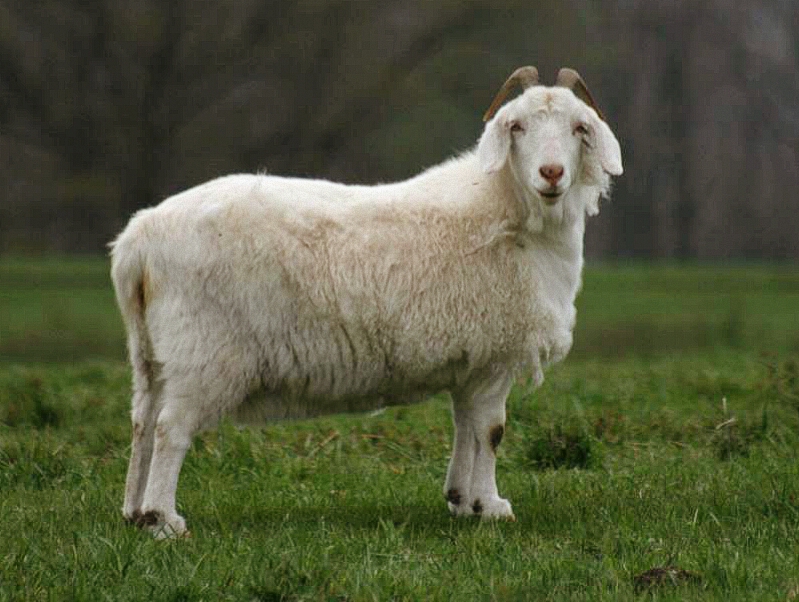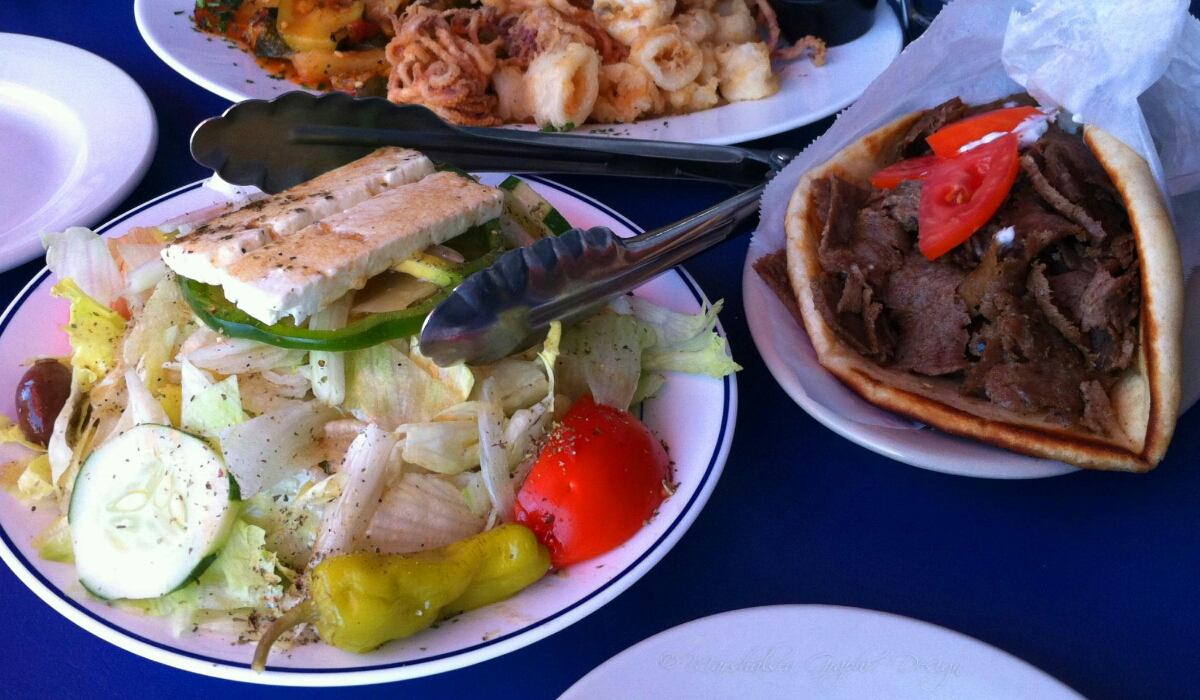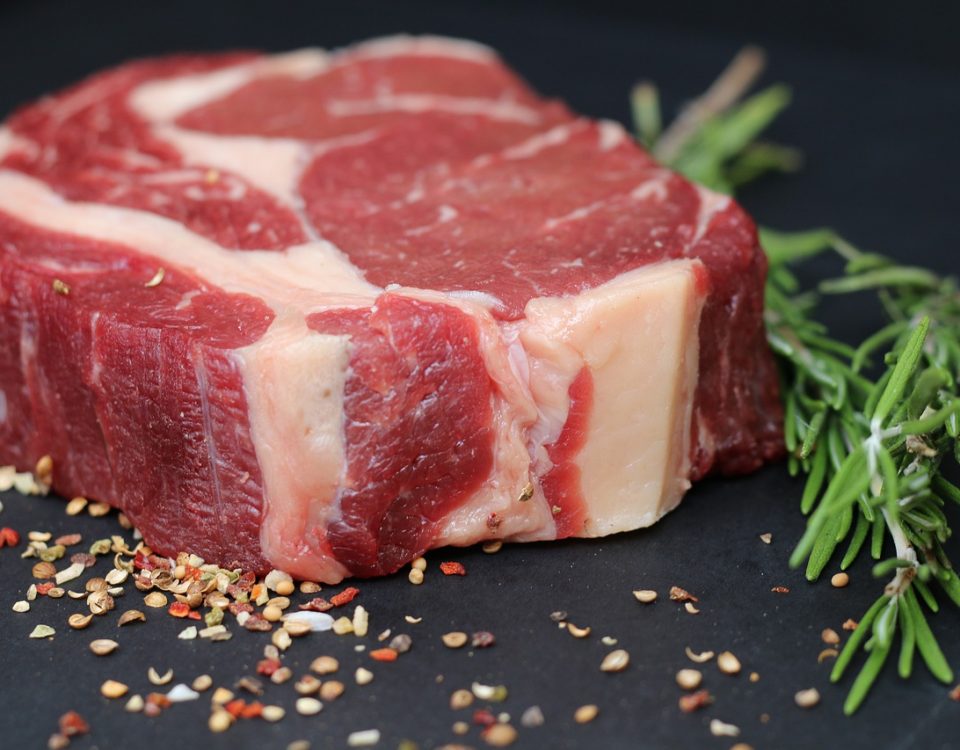- Heb je vragen?
- info@ikeethalal.nl
Animal Rights in Islam – Part II: Eating Halal
Bedrijfsuitje en halaldilemma Ken je dat?
11/04/2015
‘Eerste editie Halal Expo Europe groot succes!’
22/04/2015Animal Rights in Islam – Part II: Eating Halal
For over ten years, I assisted my husband in the halal slaughtering of hundreds of sheep and goats, as well as numerous chickens, ducks, and rabbits. Living on our 2-acre farm in the U.S., we supplied halal meat to Muslims state-wide. It’s an honor and a privilege raising animals to support one’s religion. It’s also a very satisfying, enjoyable life, living daily among God’s gentle creatures. We raised the animals ourselves, naming and loving all of them.
Islam is clear regarding the humane treatment of animals from birth to death, especially in the case of slaughtering for food. Food is a blessing for all living beings, provided only by God, and animals are among the blessings humans are provided for food. In the first article on Animal Rights in Islam – Part I: Care and Sustainability, we explored Islamic principles on caring for animals. In this article, we explore the principles and arguments surrounding Islamic halal slaughtering.
Haram and Halal Foods Are Identified in the Quran
The Quran is equally clear on both lawful and unlawful food, identifying “haram,” or forbidden foods as follows:
Forbidden to you are:
(Anything already) dead; blood; the flesh of swine;
And that on which hath been invoked
The name of other than Allah;
That which hath been killed by strangling,
Or by a violent blow, or by a headlong fall,
Or by being gored to death;
That which hath been attacked by a wild animal,
Unless ye are able to slaughter it;
That which is sacrificed on stone (pagan altars)…
[Quran 5:3]
“Halal” is basically defined as “Islamically compliant.” Observant Muslims understand the high standards God has set for them, and try their best to comply. Hypocrisy is one of the highest crimes in Islam, resulting in the worst punishments in the deepest corner of hell, so we also understand that professing to believe something and then behaving differently is not advisable for Muslims.
To every people did We appoint rituals,
That they might celebrate the name of Allah
Over the sustenance He gave them from animals.
But your God is one God,
Submit then your wills to Him…
The sacrificial camels We have made for you
As among the Symbols from Allah,
In them is (much) good for you.
Then pronounce the name of Allah
Over them as they line up (for sacrifice);
When they are down on their sides
(After slaughter), eat ye thereof,
And feed such as live in contentment,
And such as beg with due humility.
Thus have We made animals subject to you,
That ye may be grateful.
It is not their meat nor their blood
that reaches Allah,
It is your piety that reaches Him.
[Quran 22:34-37]
According to statements by the Prophet Muhammad, God’s peace and blessings be upon him, recorded before 700 A.D./C.E., animals have rights we must extend to them, even in death. He declared, “God has prescribed the doing of good toward every thing, so when you kill, kill with righteousness, and when you slaughter, slaughter with righteousness.” Therefore, to slaughter halal animals with righteousness, we must:
● Slaughter only from those animals permitted for Muslims’ food;
● Slaughter away from other animals’ sight, especially their young;
● Ensure the animal recently ate and drank;
● Ensure the knife is hidden from the animal;
● Ensure the animal is alive at slaughter;
● Ensure slaughtering is performed by a mature, sane Muslim;
● Sharpen the blade to facilitate easy slaughtering;
● Invoke the name of God while slaughtering by saying, “Bismillah Allahu Akbar,” which means “In the Name of God, God is the Greatest”;
● Slaughter with a slice from the front, fully to the left and right sides of the neck, severing the windpipe, food-tract, and the two jugular veins, without lifting the knife or cutting deep into the spinal cord;
● Ensure the head of the animal is not cut off during slaughtering;
● Never skin or remove anything before the animal is stone-dead;
● Ensure processing, storage, and transport of halal meat is performed separately from pork or other non-halal meat
The Argument Over Humane Slaughtering
Slaughterhouses have notoriously poor records for humane treatment of animals, but bad publicity is effecting change. Many countries now require two-step slaughtering. The first step, called stunning, aims to render animals unconscious, but not dead. The animal is killed in the second step. There are several methods of stunning, and global efforts through legislation are ongoing to achieve the safest, most humane methods for convenient practice within fast-paced commercial operations.
At present, three methods of stunning are predominant: electrical shock to the brain, captive bolt/bullet to the head, and asphyxiation by gas. Convenient? Yes. Humane? Debatable. Fail-Proof? No. Many animals die from the stunning, especially from the bolt/bullet to the head method, and many animals are not rendered unconscious by the gas. The trend is growing towards electrical shock as the more humane and reliable method of pre-stunning.
Islam specifically requires that animals not receive blows to the head, strangle, die from a violent fall, or suffer abuse during slaughter. For these reasons, electrical shock is accepted by many halal slaughterhouses, although it remains controversial.
The Islamic Argument Over Draining the Blood
The religious argument against rendering an animal unconscious prior to slaughter stems from the need to drain its blood during slaughter because consuming the blood is unlawful. Studies from The University of Hannover in Germany prove animals become unconscious within three seconds of halal slaughtering; therefore, many Muslims deem pre-stunning unnecessary, and even borderline haram as it stops the animal’s body movements from facilitating effective bleeding.
The opposing position is that not pre-stunning before slaughtering leaves the animal’s body free to flail about (similar to moving around on the operating table, if not physically restrained during surgery), and this is unsafe for commercial assembly lines.
Animal Rights in Islam
The Heart Pumps Blood Even When the Brain Is Unconscious
Just as in surgery, the heart continues pumping blood in any form of unconsciousness. Studies reported by the Humane Slaughtering Association in the U.K. prove that once slaughtered, there is little difference between amounts of blood evacuated from inert animals and ones allowed to flail. Clearly, slaughterhouse-worker safety needs to be considered when determining pre-stunning policy.
Islam is inherently against imposing hardships on animals and humans alike. Muslims wanting to avoid slaughterhouse controversies may buy from Muslim butchers who also slaughter, or perform their own halal slaughtering at a rural farm or ranch.
The Vegetarian Argument Over Killing Living Creatures
Some who prefer eating vegetarian argue that the Quran says permitted meats “may be eaten if one so wishes,” and that “nowhere in Islam are Muslims required to eat meat.” These statements are both false.
The annual sacrifice of an animal on the Eid al Adha is required by God of every Muslim family. There are also mandatory rules for sharing this meat among our extended family members and the poor. Although there’s an environmental argument for non-Muslim vegetarianism, it is clearly hypocritical for Muslims to participate yearly in the mandatory sacrifice of an animal they refuse to eat. In fact, the requirement to eat halal meat and the response we may offer those who disagree with its consumption are both covered clearly in the Quran:
The Word of thy Lord doth find its fulfillment
In truth and in justice.
None can change His words,
For He is the One Who heareth and knoweth all.
Wert thou to follow the common run of those on earth,
They will lead thee away from the Way of Allah.
They follow nothing but conjecture, they do nothing but lie.
Thy Lord knoweth best who strayeth from His way.
He knoweth best who they are that receive His guidance.
So eat of (meats) on which Allah’s name
Hath been pronounced, if ye have faith in His Signs.
Why should ye not eat of (meats)
On which Allah’s name hath been pronounced,
When He hath explained to you in detail
What is forbidden to you,
Except under compulsion of necessity?
But many do mislead by their
Appetites unchecked by knowledge.
Thy Lord knoweth best those who transgress.
[Quran 6:115-119]
Plants Are Equally as Alive as Animals
The grocery stores and markets of the earth are overflowing with food that God provides us. Plants are no less living creatures than animals, according to Islam, and everything we eat comes from living beings. Animal farming, especially cattle ranching, is greener than many believe. Discriminating against any source of food, outside of our religious constraints, on the basis that it’s a living creature, is illogical for Muslims. Humans can not avoid killing, in order to eat.
Death is a fact of life. Rather than fearing or trying to avoid it, why not face it, embrace it in a gentle hug and endeavor to ease those inevitable moments of death? Then, fire up the stove, start cooking, and celebrate life with a delicious halal meal for you and your family, giving thanks to our Creator for providing it!
So eat of the sustenance which
Allah has provided for you, lawful and good;
And be grateful for the favours of Allah,
If it is He whom ye serve.
He has only forbidden you dead meat,
And blood, and the flesh of swine,
And anything over which the name of
Other than Allah has been invoked.
But if one is forced by necessity,
Without willful disobedience
Nor transgressing due limits―
then Allah is Oft-Forgiving, Most Merciful.
[Quran 16:114-115]






